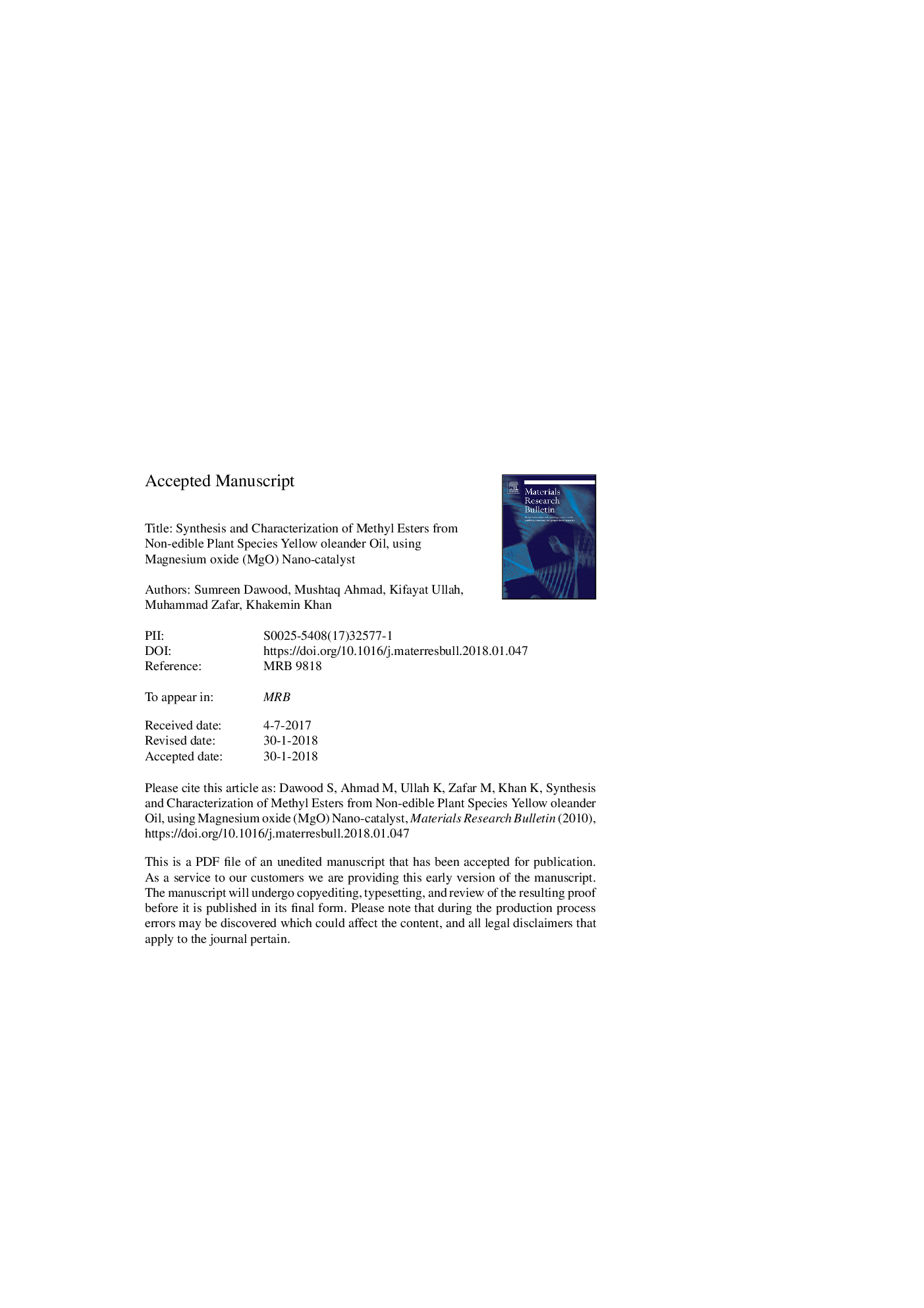| Article ID | Journal | Published Year | Pages | File Type |
|---|---|---|---|---|
| 7904985 | Materials Research Bulletin | 2018 | 27 Pages |
Abstract
Synthesis and characterization of methyl esters from non-edible oil sources provide a distinctive and sustainable approach towards sustainable energy and the cleaner environment, in general. This study aims the synthesis of methyl esters from non-edible plant species yellow oleander seeds oil. The transesterification process was carried for the synthesis of methyl esters, using heterogeneous nano-catalyst magnesium oxide (MgO). A well known co-precipitation method was used for the synthesis of MgO nano-catalyst. The application of MgO nano-catalyst showed the maximum conversion (93.1%) of triacylglycerols to methyl esters. Different parameters affecting the conversion percentage; alcohol to oil molar ratio, temperature and catalyst concentrations were checked and optimized, accordingly. The optimum conditions for the maximum conversion noted; 1:5 oil to methanol molar ratio at 90â¯Â°C, using 0.2% (w/w) MgO nano-catalyst. The various analytical techniques; XRD, SEM-EDX and TEM-EDS spectroscopes were used to check out the nano-particle morphology and crystalline size, accordingly while, the FTIR, GC-MS & NMR were used to quantify and determine the structural measurements of synthesized methyl esters. The fuel properties of oleander methyl esters papered sample were checked, compared and found within accordance to the ASTM standards.
Keywords
Related Topics
Physical Sciences and Engineering
Materials Science
Ceramics and Composites
Authors
Sumreen Dawood, Mushtaq Ahmad, Kifayat Ullah, Muhammad Zafar, Khakemin Khan,
